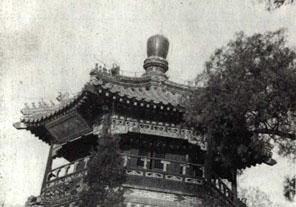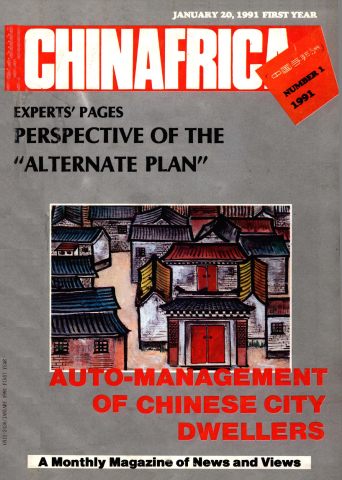At dawn, Niujie, the old Islamic street, is brimming with activity. In an old mosque halfway down the street, several hundred Mosleums with white caps kneel on long stretches of carpet, called to prayer by an old imam. Not far from the Niujie Mosque, pedlars gather in a lane, hawking mutton they have brought on bicycle from the suburbs.
With more than 700 years of history, Niujie Street in the south west of Beijing is home to some 11,200 Hui (Moslem) residents, the largest Islamic community in Beijing.
The street now boasts two kindergartens, three primary schools and one high school for Hui children. “We do not teach the Koran but we teach our children the history of the Hui nationality and the stories of our heroes,” said a schoolteacher. “Beijing is home to two Islamic theology institutes where students study the Koran every day,” she added.
In recent years, religious activities have been revived on the old street. Many young Mosleum couples now ask an imam to write an Islamic marriage contract and pray for their happiness after they get their official marriage certificate. The traditional Islamic funeral practice is also maintained.
According to historical records, Niujie Street emerged in the Yuan Dynasty ( 1271-1368).Most residents are descendants of Arabs who immigrated between the Tang and Yuan dynasties (618-1368). There were three main waves of Arab immigration during this period. Many of them came to China along the Silk Road or by sea, as army soldiers or merchants. Some of them settled and got married to native Chinese women.
But because of their religious beliefs and different customs, these immigrants, the forefathers of the modern Hui people, preferred to live in closed communities, in a village or a street of a town.
In Beijing, as elsewhere in China, the Hui can be found everywhere, but many of them live together in communities like that of Niujie Street.
Before 1949, more than half the Hui residents on Niujie Street made their living selling food, vegetables and fruits in the street. Because of their low education level and different lifestyle, few were able to secure any official positions or own a large enterprise.
Since the founding of New China, their social status has considerably improved, and more became workers in large factories or government officials. Some of them have moved away from Niujie Street. But their number still exceeds that of other ethnic groups living on the street.
For hundreds of years, residents on the street have preserved most Islamic traditions and customs, though some have changed or were lost.
Some households still bring their infants to the Niujie Mosque for a ritual washing on the third day after birth; they invite an imam to read the Koran and thank Allah for his blessings on the child and mother. In addition to a Chinese name, the child also takes an Arabic name to be used in religious ceremonies.
Hui people have a unique way of dressing. It is now still very common for men to wear white skullcap, not only during a religious service but also in their daily lives. Inside a mosque, men are not allowed to wear shorts while women are not permitted to wear low-cut blouses or short skirts.
Eating pork is taboo for Hui people, and the local government makes sure they are provided with enough beef and mutton at State-subsidized prices.
However, there are still some complaints on the street. As they have become more prosperous, more and more Hui households on the street now have colour televisions and refrigerators, crowding up the old houses.
This problem is now being tackled by local authorities. In recent years, a luxury Moslem restaurant, a 11-storey hospital building and rows of Islamic-style residential buildings have been constructed under a municipal plan to renovate the old street.

Niujie Mosque.


 Copy Reference
Copy Reference 